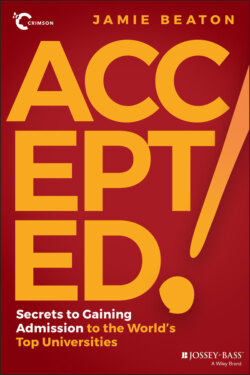Читать книгу Accepted! - Jamie Beaton - Страница 6
Foreword
ОглавлениеFormer Prime Minister of New Zealand, the Rt. Hon. Sir John Key
My mother learned the hard way the value of education.
She was 16 and living in Austria when the growing Nazi threat against Jews prompted her recently widowed mother to send her to safety in England. Although her mother survived the war, many of my extended family members died in concentration camps. People commonly talk of the “dark clouds” that were gathering over Europe in the prewar period. To my grandmother, mother, and the many family members I never had a chance to meet—and to millions of other people—the threat to their homes, livelihoods, friends, and families was very real. Those who could, fled.
My mother, Ruth, was an intelligent woman and she may well have had a good education in Austria had her life not been so brutally altered by World War II. Instead, she arrived in England speaking almost no English and with no way to further her formal education. In time, she married an Englishman and moved to New Zealand. I was the youngest of their three children. When my father died—I was at primary school—my mother once again set about rebuilding her life. And once again as an immigrant.
My mother instilled in me the need for a good education. Having herself lost the security she had depended on, first as a teenager, and then as a young wife and mother, she understood its value. This is a common thread in the story of many refugees and immigrants. A person and a family can lose almost everything—their home, their job, their friends, their citizenship—but they still retain their character, their education, and their skills. It's these that have allowed many people to start new lives.
Education is the ladder that can enable people to climb to heights otherwise thought unachievable. Education is also a currency that has value the world over. Like currencies, some education has more value than others.
This book focuses unashamedly on elite education. It's about how the cream of the world's universities select from some of the best and brightest students graduating from high schools around the world every year. The maths, as any of these bright students will tell you, are not on their side when they apply to Harvard, MIT, or Oxford. But in this book, Jamie Beaton generously shares his own firsthand and professional knowledge to help students tilt the table a bit more in their favor.
Students aspire to attend elite universities for a whole range of reasons, including the fact that a degree from one of them opens doors to employment at similarly elite global companies. These universities' selection processes, as you'll read in the following chapters, are so thorough and rigorous that employers of choice know much of the sorting task has been done for them.
It would be wrong to think anyone can simply game the university entrance system by trickery. That is not Jamie's argument here. Intelligence, hard work, and creativity remain the key requirements. But there are strategies, from course selection to choice of part-time jobs, that might increase a person's chances, and Jamie canvasses those in the following pages.
I am a graduate of the University of Canterbury in Christchurch, New Zealand, and had a great education there. It would be remiss of me to not remind ambitious young people that there is more than one pathway to success. Not getting into an elite overseas university might end one dream—but it needs to inspire another. In New Zealand, the worth of a person is not measured by which university they attended, if any. But it's true that what degree you complete, what grades you get, and where you studied will be something employers look at. Some of the global financial firms I worked in would hire graduates only from a select and prestigious group of universities. That didn't always sit well with me as a Kiwi who believes strongly in opportunity. But choosing graduates from selected schools was clearly a guaranteed way of tapping into a hugely impressive pool of highly talented people.
Countries like Singapore and South Korea, which, as nations, took deliberate steps to lift their economic game and to become more competitive, are in the same market for that talent. In the competitive market for skills, and with the increasing technological sophistication of even the most basic tasks, the desire by corporations and nations to feel confident that they are hiring people with the right answers is only getting stronger. Borders tend to melt away for those with the right education and skills. Their market is the world.
This book, based on the experience of Jamie and the thousands of students assisted and nurtured by Crimson Education, will help students and their families understand the selection systems of the world's top universities. It doesn't tell you what to do with your education once you have it—wherever you end up getting it. My message to students, like my mother's message to me, is to value whatever educational opportunities you have. Embrace challenges. Say yes to opportunity. Learn, and learn more. No knowledge is wasted.
If, like me, you have the opportunity in your career to give back to your community or your country, do so. The world is facing unprecedented environmental challenges and social strain is evident everywhere. Education has a private and a public benefit, and an elite education is likely to enhance the opportunity to build wealth and security for yourself and your family. But some of the greatest rewards and satisfactions in life come from using your education and achievements to lift up people you might never meet. You don't have to have an education to do that but, as in most things, it will certainly help.
To everyone reading this book, I wish you luck in your endeavors, and lots of caffeine at exam time.
Rt. Hon. Sir John Key
